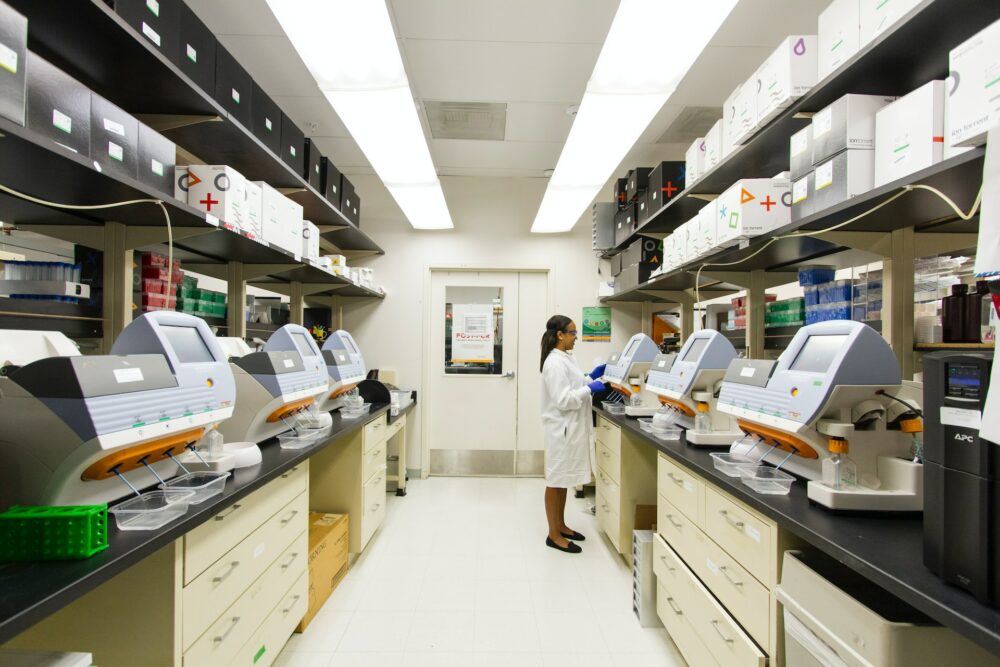Science is a vast and fascinating field that encompasses an array of diverse disciplines, each capable of unlocking new understandings and contributing to our collective knowledge. Venturing into the realm of science can seem daunting due to the sheer volume of information and complex concepts. But with the right strategy and approach, your journey into science can be manageable and extremely rewarding. This guide is designed to provide helpful tips and insights that can simplify your educational process and ignite your passion for scientific exploration.
Get the right equipment
Having the right equipment is crucial in your scientific journey. The requirements might vary depending on your field of study, but some essentials remain constant. Providers like Pasco can equip you with a quality microscope for up-close observations, a telescope for astronomical studies, or a top-rated lab kit for home experiments. Ensure that you have access to a good computer with internet capabilities for research and virtual simulations.
Safety gear such as lab coats, goggles, and gloves are necessary for fields like chemistry and biology. The aim is to create a practical learning environment where exploration is encouraged in a safe and controlled manner.
Utilize online resources
The internet is a wealth of resources for science education. Websites like Khan Academy, Coursera, or the Massachusetts Institute of Technology’s OpenCourseWare offer a range of free online courses across various scientific disciplines. These platforms present complex concepts in a simplified and engaging manner, making learning accessible and enjoyable for all.
Consider utilizing interactive tools such as digital simulations and virtual labs to enhance understanding and strengthen critical thinking skills. Don’t forget to leverage scholarly databases like PubMed and JSTOR for academic research and comprehensive studies in your field of interest.
Connect with other science students
Forming connections with fellow science students can be incredibly beneficial for your educational journey. Participate in study groups or online forums where you can discuss concepts, share insights, and collaborate on projects.
Aside from the online world, consider joining a science club or organization at your school or in your local community. These groups provide opportunities to network with like-minded individuals, attend workshops and events, and gain valuable hands-on experience. Through these connections, you can also gain access to mentorship and internship opportunities, which can further enhance your learning experience.
Take advantage of tutoring services
Tutors can provide one-on-one assistance, tailoring their teaching methods to your unique learning style. They can explain complex concepts in a way that makes sense to you, answer your specific questions, and help you work through challenging problems.
Both in-person and online tutoring services are available, so consider your learning preferences and schedule when making your selection. Know that seeking help is not a sign of weakness but rather a proactive step towards academic success.
Set up study group sessions
A study group allows you to compare notes, bounce ideas off each other, and fill in any gaps in your understanding. It provides an opportunity to learn different perspectives, thereby widening your knowledge base. If you don’t know how to set up a study group, seek guidance from your school or utilize online platforms like Meetup to connect with other students interested in studying together.
Either way, you want to keep your group small and focused to ensure maximum productivity. Choose members who are dedicated, reliable, and committed to learning. You don’t want to end up in a group where socializing takes precedence over studying.
Experiment with different methods of learning
Different people have different learning styles. Some students are visual learners who understand information better when they see it. These learners can benefit from diagrams, charts, and other visual aids. Auditory learners, on the other hand, retain information more effectively when they hear it and might find lectures, discussions, or educational podcasts helpful. Kinesthetic learners learn best by doing, making hands-on experiments and practical applications ideal for them. Lastly, reading/writing learners prefer to learn through reading and note-taking.
Your learning style might be a combination of these or one in particular. Experiment with different methods to determine which works best for you and integrate them into your study routine.
Stay organized and motivated
With the vast amount of information, it can be easy to get overwhelmed and lose track of deadlines, assignments, and projects. Keep a planner or use a digital calendar to stay organized and on top of your tasks. Break down large projects into smaller, manageable tasks and set deadlines for each.
Stay motivated throughout your education process. Remind yourself of why you chose to pursue science, set achievable goals, and celebrate small victories along the way. Surround yourself with motivation by following inspiring science accounts on social media, attending scientific events and lectures, or reading biographies of notable scientists.

Science is an ever-evolving field that requires continuous learning and adaptability. Following these tips simplifies your education process and cultivates a lifelong passion for scientific exploration. Embrace the challenges, stay curious, and let your thirst for knowledge guide you on this exciting journey.


